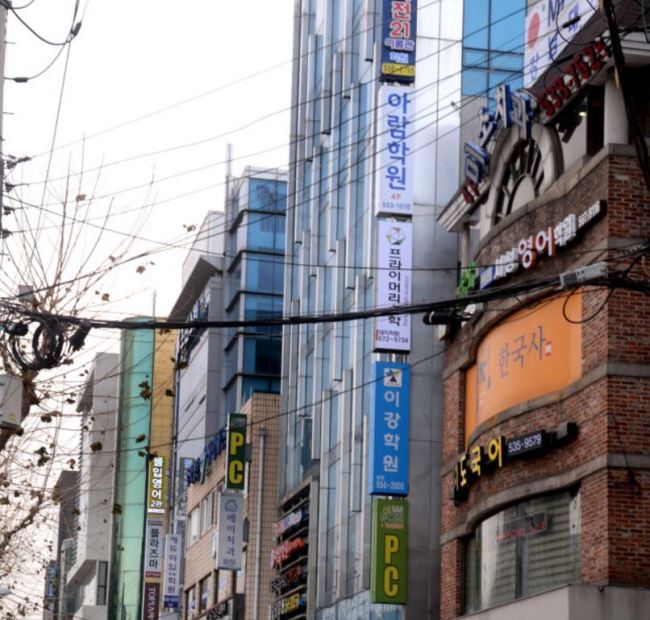More than 83 percent of 5-year-olds and 36 percent of 2-year-olds in South Korea receive private education, a study revealed Monday.
According to the report published by the Korea Institute of Child Care and Education, a typical 5-year-old Korean kid receives private education 5.2 times a week for a duration of 50 minutes per session. For 2-year-olds, the average is 2.6 times a week and 47.6 minutes per session.
The findings are based on a survey conducted between August and October last year on 1,241 parents with children aged 2 or 5. There were 537 of them with 2-year-olds and the remaining 704 had 5-year-olds.

Korean language, sports and arts were the most common subjects for private education for the children, followed by English. The report encompassed private academies, known as hagwon here, as well as private tutoring and home learning programs.
In many cases, 5-year-olds attend normal kindergarten classes by day and go to a hagwon for after-school studies, the report found. The after-school sessions last as long as four hours, it added.
Nearly 70 percent of the surveyed parents with 2-year-olds said the level of their child’s education was adequate, with 27 percent saying it was not enough.
As for those with 5-year-olds, 54.3 percent of the parents said their education level was adequate, while 40 percent said they needed more.
“Children, especially at a younger age, should be able to build a healthy relationship with their parents during the critical early years, which would later help them to get along with their peers. Spending most of their time at a hagwon is a hurdle to the process,” Kim Eun-young, who headed the study, told The Korea Herald.
She warned that excessive education at an early age could led to notable problems, such as depression and lack of concentration, or even the development of aggressive forms of behavior.
By Bak Se-hwan (sh@heraldcorp.com)
In many cases, 5-year-olds attend normal kindergarten classes by day and go to a hagwon for after-school studies, the report found. The after-school sessions last as long as four hours, it added.
Nearly 70 percent of the surveyed parents with 2-year-olds said the level of their child’s education was adequate, with 27 percent saying it was not enough.
As for those with 5-year-olds, 54.3 percent of the parents said their education level was adequate, while 40 percent said they needed more.
“Children, especially at a younger age, should be able to build a healthy relationship with their parents during the critical early years, which would later help them to get along with their peers. Spending most of their time at a hagwon is a hurdle to the process,” Kim Eun-young, who headed the study, told The Korea Herald.
She warned that excessive education at an early age could led to notable problems, such as depression and lack of concentration, or even the development of aggressive forms of behavior.
By Bak Se-hwan (sh@heraldcorp.com)
















![[KH Explains] Hyundai's full hybrid edge to pay off amid slow transition to pure EVs](http://res.heraldm.com/phpwas/restmb_idxmake.php?idx=652&simg=/content/image/2024/04/18/20240418050645_0.jpg&u=20240419100350)

